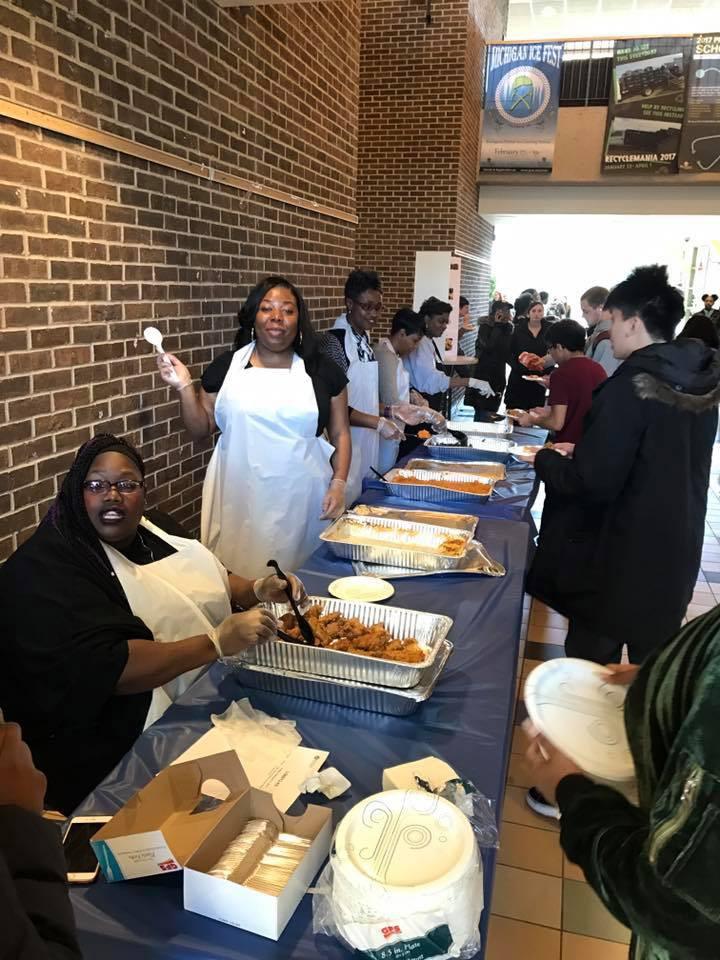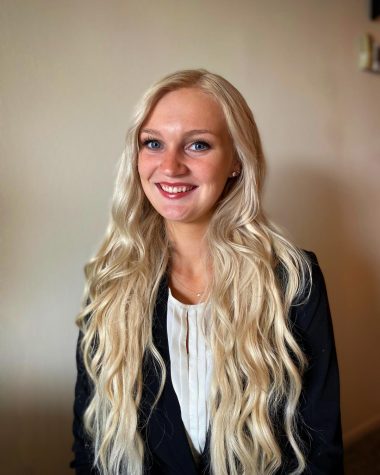“We Are Not Invisible” program to celebrate black history

Courtesy / Office of Multicultural Affairs
Jan 28, 2019
\Each year, Martin Luther King Jr. (MLK) day is celebrated to display MLK’s importance in human history. This year through the “We Are Not Invisible” program, the Multicultural Affairs Department at Grand Valley State University strives to not only recognize the day, but to make a regular routine in celebrating the important contributions that African Americans have made.
On Friday, Feb. 1, the Multicultural Affairs Department will be hosting “We Are Not Invisible” from 12 to 1:30 p.m. There will be a variety of activities going on with focus primarily on the significance of Black History Month.
The event will be held in the Kirkhof Center room 2204 Pere Marquette. It is open for anyone to come and enjoy an evening showcasing an exhibit of several black students’ experiences through their own personal lenses.
Also featured will be an eye-opening display of food that African American people were given to live off of when they were enslaved.
“Historically our ancestors were given scraps to eat such as pig feet and chicken liver,” Coordinator for Black History Month Juanita Davis said.
Students will not only get to see history behind the food, but they will also be able to devour traditional African American soul food such as fried chicken and macaroni and cheese.
Professor of African American Studies Dr. Rik Stevenson will open the event by expressing how people of color desire to be recognized in their totality.
“We want to open up the minds of those who don’t really know why we have African American History Month,” Stevenson said. “We want them to recognize how African Americans have contributed to not just the United States, but to the world itself.”
Seven black student organizations will be displaying artwork that captures an emotional connection with their experiences at GVSU.
“Students of color often feel invisible in the classroom and this gives them an opportunity to share their experiences,” Davis said. “This is a unique way we can show underrepresented student populations.”
Through the presentation, Stevenson hopes to reach people by speaking about one of the first scholars to study African American history, Carter G. Woodson.
“Woodson began to realize that black people were not in the textbooks,” Stevenson said. “So he created this organization called The Association for the Study of African American Life and History and each year there were themes created so that scholars would learn about contributions of science, medicine and academia black people made.”
“We Are Not Invisible” aims to highlight the large variety of inventions developed by African Americans, such as the stoplight, ironing board and straightening comb. The Multicultural Affairs Department’s goal is to not only celebrate Black History Month, but to integrate it every day in attempt to bring our diverse community closer together.
“We need to learn enough about each other so that we can become more acquainted with how much we need one another,” Stevenson said.
“We Are Not Invisible” will be an opportunity to see artwork, eat cultural foods and hear about African American History month. Stevenson points out how further educating ourselves will help break the walls that separate us.























